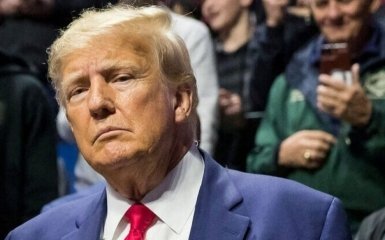Europe is hastily preparing for the possible return of Donald Trump to the White House.
Points of attention
- Europe is preparing for a possible Trump victory and is developing a strategy to support Ukraine, including personal contacts, meeting defense requirements and diplomatic measures.
- Trump's relationship with the Russo-Ukrainian war has worried allies, leading to a plan to transfer control of military support to Ukraine to a special NATO headquarters.
- The strategy of NATO countries is based on personal contacts with Trump, fulfilling his defense requirements and developing diplomatic measures to protect the priorities of the alliance.
- A personal relationship with Trump could affect cooperation between European diplomats and his incoming administration.
- There is optimism about productive meetings between European diplomats and conservative academics in the US, but there is uncertainty about the possibilities of cooperation if Trump comes to power.
How the EU is preparing for Trump's victory
Journalists interviewed more than 50 diplomats, legislators, experts and political technologists in NATO countries and other countries. Many of them spoke on condition of anonymity.
Joe Biden's failed performance at the televised debates finally cemented the belief among US allies that they will have to deal with a new administration in the White House starting next year.
In general, the strategy of NATO countries for interaction with Trump's America will be built on three main pillars:
extensive personal contacts with Trump and his advisers in the hope of minimizing damage to Western civilization;
partial compliance with certain Trump demands regarding European defense spending;
developing "creative diplomatic and legal measures" to protect NATO priorities from the Trump administration.
However, there are certain difficulties in the way of implementing this strategy.
Of course, the biggest problem is that we don't know — and I don't think anyone knows for sure — what he's going to do, said one diplomat from a NATO country.
Right now in America, many right-wing politicians and pundits are announcing certain strategies, claiming to speak for Trump or to have discussed them with Trump. But secret European diplomacy still has problems with understanding which of these people really represent Trump, and who are just promoting him. And this complicates the process of coming out against Trump himself.
One lesson that America's allies learned from the first Trump administration is that personal relationships with the former president and those closest to him are the most important, writes Politico.
During his presidency, Trump had warm relations with Japanese Prime Minister Shinzo Abe, Brazilian President Jair Bolsonaro, British Prime Minister Boris Johnson and North Korean dictator Kim Jong Un. According to Politico, each of them used this direct personal connection in their own interests.
In recent weeks, several NATO diplomats have quietly traveled to Washington to meet with conservative academics and people associated with think tanks who they believe may have some influence on Trump's policies. The meetings appeared to be productive, one ambassador said. But there is an atmosphere of randomness around them.
"We don't know if the people we're meeting with will actually stay there if Trump is elected president," said one NATO official.
Save Ukraine from Trump
A separate problem is Trump's attitude to the Russian-Ukrainian war and his desire to leave Ukraine without military support.
Until now, the USA has been the main driver of military aid to Ukraine. At a meeting of NATO defense ministers in Brussels in mid-June, members of the alliance preliminarily agreed on a plan to transfer control over support to Ukraine to a specially created headquarters under NATO itself.
In theory, that would make the aid administration "Trump-proof," as some diplomats put it. The final decision is expected at the NATO summit in Washington.
If implemented, the plan would gradually hand over control of the aid to a group of 200 NATO soldiers in the Belgian city of Mons — a group that would continue to work with the United States but under the NATO flag.
But it's unclear how much those formal arrangements could actually constrain Trump if he wins the presidency, Politico writes.
More on the topic
- Category
- Politics
- Publication date
- Додати до обраного


